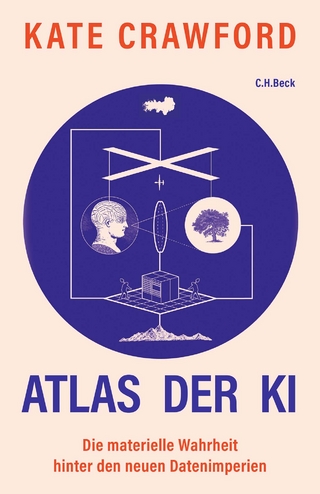
Cognitive Design for Artificial Minds
Routledge (Verlag)
978-1-138-20792-9 (ISBN)
Beginning with an overview of the historical, methodological, and technical issues in the field of cognitively inspired artificial intelligence, Lieto illustrates how the cognitive design approach has an important role to play in the development of intelligent AI technologies and plausible computational models of cognition. Introducing a unique perspective that draws upon Cybernetics and early AI principles, Lieto emphasizes the need for an equivalence between cognitive processes and implemented AI procedures, in order to realize biologically and cognitively inspired artificial minds. He also introduces the Minimal Cognitive Grid, a pragmatic method to rank the different degrees of biological and cognitive accuracy of artificial systems in order to project and predict their explanatory power with respect to the natural systems taken as a source of inspiration.
Providing a comprehensive overview of cognitive design principles in constructing artificial minds, this text will be essential reading for students and researchers of artificial intelligence and cognitive science.
Antonio Lieto is a researcher in Artificial Intelligence at the Department of Computer Science of the University of Turin, Italy, and a research associate at the ICAR-CNR in Palermo, Italy. He is the current Vice-President of the Italian Association of Cognitive Science (2017–2022) and an ACM Distinguished Speaker on the topics of cognitively inspired AI and artificial models of cognition.
1 Cognitive science and artificial intelligence: death and rebirth of a collaboration
When Cognitive Science was AI
From the general problem-solver to the society of mind: cognitivist insights from the early AI era
Heuristics and AI eras
Modelling paradigms and AI eras: cognitivist and emergentist perspectives
Death and rebirth of a collaboration
2 Cognitive and machine-oriented approaches to intelligence in artificial systems
Nature- vs. machine-inspired approaches to artificial systems
Functionalist vs. structuralist design approaches
Levels of analysis of computational systems
The space of cognitive systems
Functional and structural neural systems
Functional and structural symbolic systems
3 Principles of the cognitive design approach
Classical, bounded, and bounded-rational models of cognition
Resource-rationality models
Kinds of explanations
Levels of plausibility and the minimal cognitive grid (MCG)
4 Examples of cognitively inspired systems and application of the Minimal Cognitive Grid
Modern AI systems: cognitive computing?
Cognitive architectures
SOAR
ACT-R
Two problems for the knowledge level in cognitive architectures
Knowledge size and knowledge heterogeneity in SOAR and ACT-R
DUAL PECCS
5 Evaluating the performances of artificial systems
"Thinking" machines and Turing Test(s)
The Chinese Room
The Newell test for a theory of cognition
The Winograd Schema Challenge
DARPA challenges, RoboCup, and RoboCup@Home
Comparison
6 The next steps
The road travelled
The way forward
Towards a standard model of mind/common model of cognition
Community
| Erscheinungsdatum | 04.12.2018 |
|---|---|
| Zusatzinfo | 3 Tables, black and white; 7 Line drawings, black and white; 7 Illustrations, black and white |
| Verlagsort | London |
| Sprache | englisch |
| Maße | 156 x 234 mm |
| Gewicht | 331 g |
| Themenwelt | Geisteswissenschaften ► Psychologie ► Allgemeine Psychologie |
| Geisteswissenschaften ► Psychologie ► Verhaltenstherapie | |
| Informatik ► Theorie / Studium ► Künstliche Intelligenz / Robotik | |
| ISBN-10 | 1-138-20792-6 / 1138207926 |
| ISBN-13 | 978-1-138-20792-9 / 9781138207929 |
| Zustand | Neuware |
| Informationen gemäß Produktsicherheitsverordnung (GPSR) | |
| Haben Sie eine Frage zum Produkt? |
aus dem Bereich


